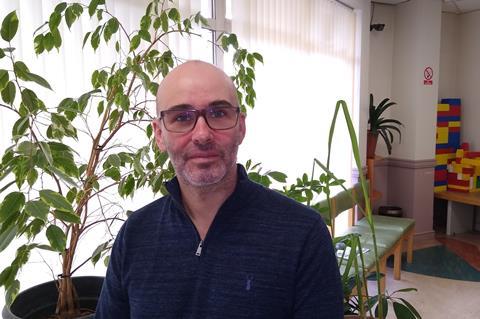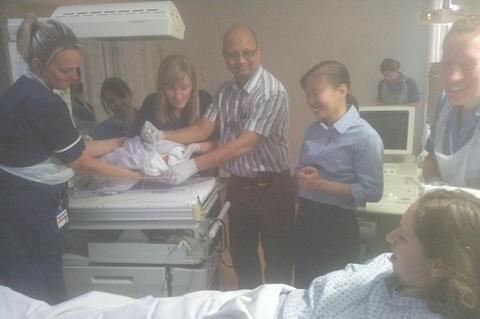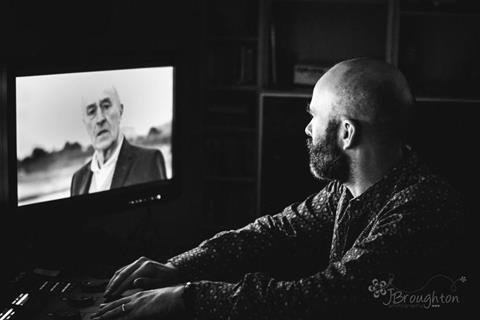As coronavirus forces the industry to adopt more remote working solutions, editor Ian Brown looks at remote post production as a valuable talent retention tool for carers and parents whilst making reasonable adjustments for workers with disabilities.

As the Covid-19 pandemic spread and the lockdown began, I was interested to watch how post production companies across the country were able to continue pumping out television programmes by enabling their staff to work remotely. As someone who has been evangelical about these possibilities, it struck me as a real watershed moment.
When my world first changed forever
On 5th October 2012, my world changed forever when my twins, Thomas and Mia, were born 16 weeks prematurely. The first few weeks were frantic but as things settled down and we waited for them to “cook”, I went back to work as a television editor.
I had been working for ITV when my twins were born unexpectedly and luckily my series producer and production coordinator were massively empathetic to my situation. When I indicated I would be able to carry on working, they supplied me with a laptop with Media Composer on it and a hard drive with a copy of the media. This allowed me to sometimes work from home, sometimes go to the edit, whilst also juggling my hospital visiting. It wasn’t perfect but it gave me the option to carry on working and earning money for my family.

Once the twins were safely home, I tried to resume my editing career as normal but it was very difficult. Thomas has multiple and profound disabilities whilst Mia has severe asthma. They were both in and out of hospital and I became an unreliable booking as my caring responsibilities meant I was unable to commit to long hours and often needed time off at very short notice.
Luckily I had a relatively loyal client base, so I began to only accept jobs from people who knew my situation. I also started to gravitate to work that allowed me to work primarily on my own which meant I could in effect set my own hours. It gradually became obvious to me that with the right setup, I could complete most of my work I was doing from home.
Building the future
Although it is possible to run a lot of post production software on a moderately powerful laptop or computer, as I do a lot of finishing and colour grading I needed something more robust. I had a strong relationship with Scan Computers in Bolton and so I worked with their Pro Video department to build a 4K finishing suite complete with a calibrated monitor.
We used gaming components to keep the power up and the cost down and I even found a free way to replicate Avid Shared Storage on my 24TB of directly attached storage.

The reluctance to embrace remote working
Once they knew I existed, small companies and charities embraced the opportunity to get facility quality finishing at a lower price point but even though my system was designed with television in mind, I struggled to convince people in the industry that this might be the future.
I came up against data security policies and reluctance for digital assets to be taken offsite.
Having fibre broadband, I explored accessing their shared storage via the cloud but facilities were reticent to engage with me as they risked undermining their “rooms for hire” model, so I resigned myself to commuting to facilities to sit on my own for the foreseeable future.
- Read more: How vendors are helping home workers
Then 3 weeks ago the television world changed forever. The needs of the facilities to make this situation work suddenly made remote editing happen on an industry wide scale. Although these successes may be born out of the current crisis, with Covid-19 not going away anytime soon, this model may become the new normal and for people like me, carers, parents and workers with disabilities, this is a great thing!
The future is remote
It is nothing short of a tragedy that so many skills are often lost to the industry when it is unable to adapt to meet the needs of its workers as their situations change or to cope with their disabilities. Working from home allows the worker to build an environment around themselves that suits their individual circumstances.
I find that working from home allows me to work flexibly without having to clock in and out. This autonomy is liberating but it is balanced with a sense of responsibility to deliver the project on time and to the best of my abilities. If I stop for Pop Master or to take Thomas to an appointment, I will pop back in the edit once the kids are asleep and blast through a couple of hours in the evening. Working from home does not mean being unprofessional, it just means your working hours often become less linear whilst balanced with your family life.
We are currently in a process of fundraising to adapt our home to suit Thomas’s needs and future independence and one of the components of the build is to retain a space where I can work from home wherever possible whilst balancing his caring needs.
The Television world is beginning to realise that it has now changed forever.
Money will be tighter, budgets reduced and travel problematic for at least the short to medium term future. Once acquisition resumes, it would be amazing to see facilities becoming media gatekeepers and not slip back to their room for hire model. Homeworking as an option should become available whenever it is requested and by giving workers in the industry much greater power to rebalance their work and family lives by using the available technology, we have a chance to massively improve the mental health of post production staff. It is just a shame that it has taken a pandemic for television to start making the reasonable adjustments so many of us need to stay within the industry.





















3 Readers' comments